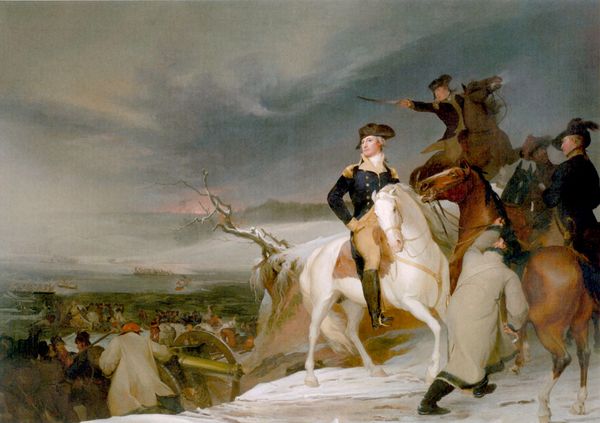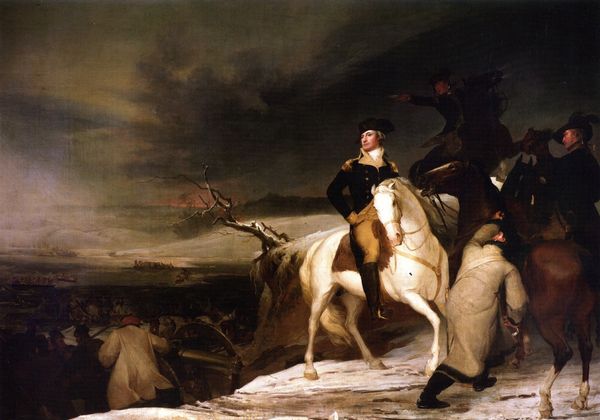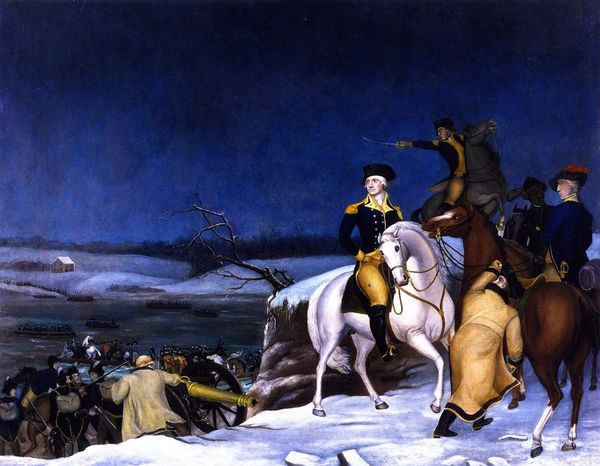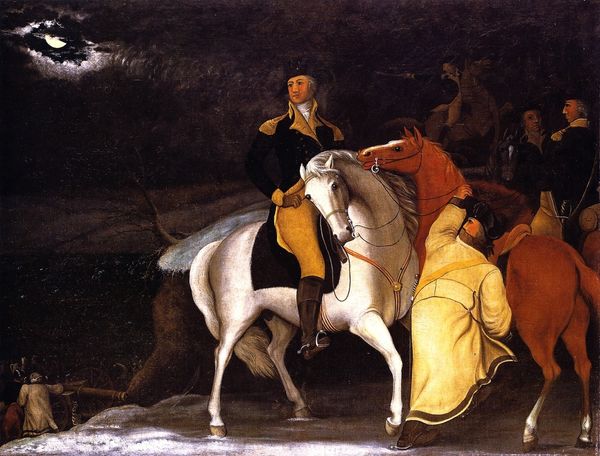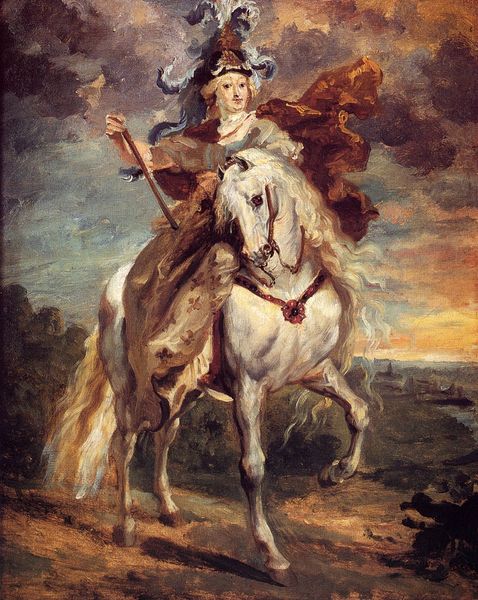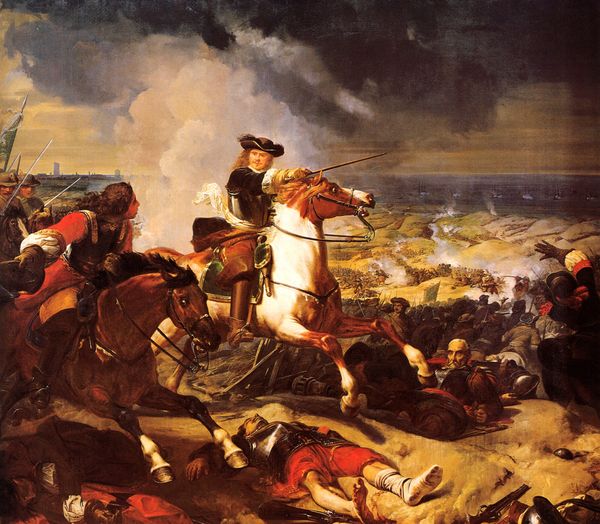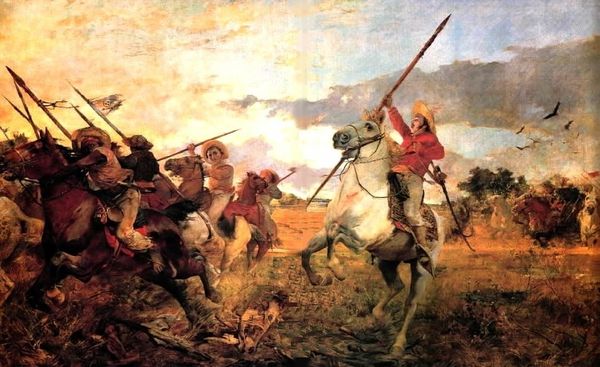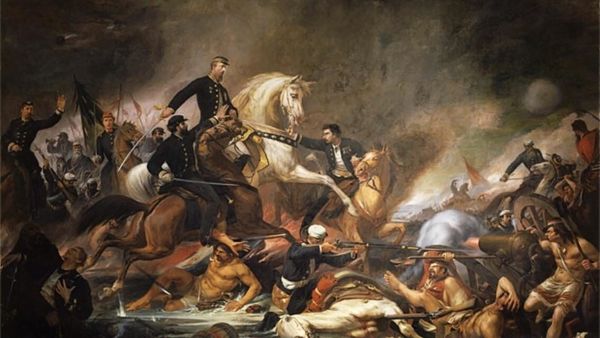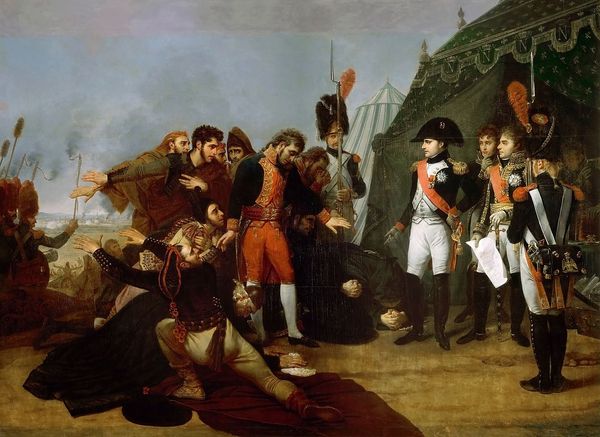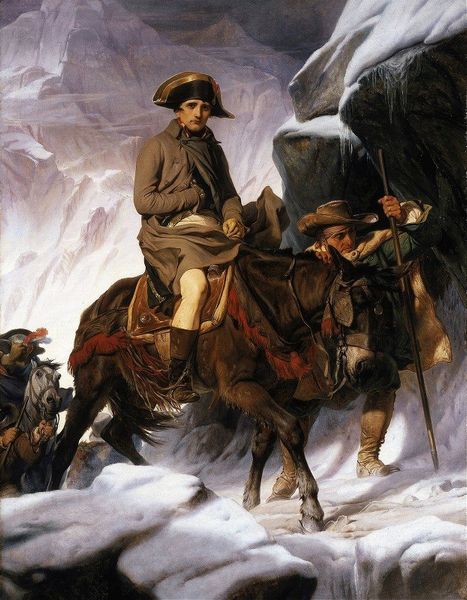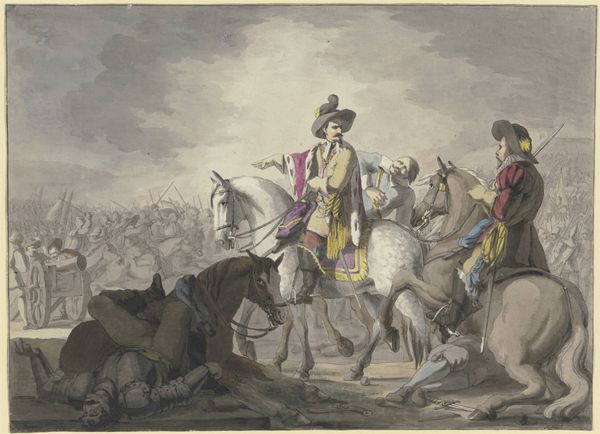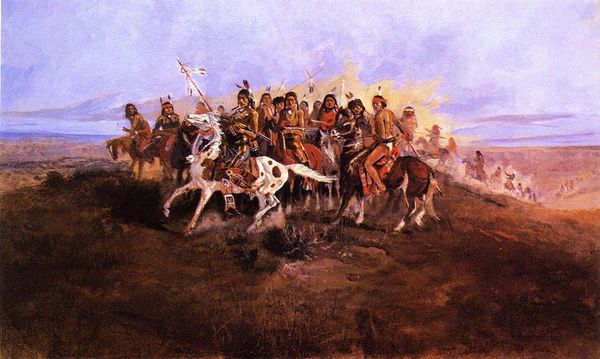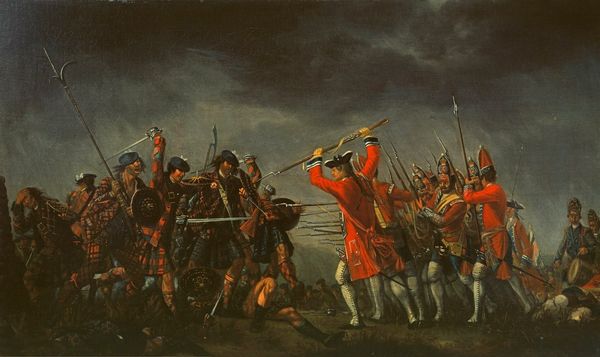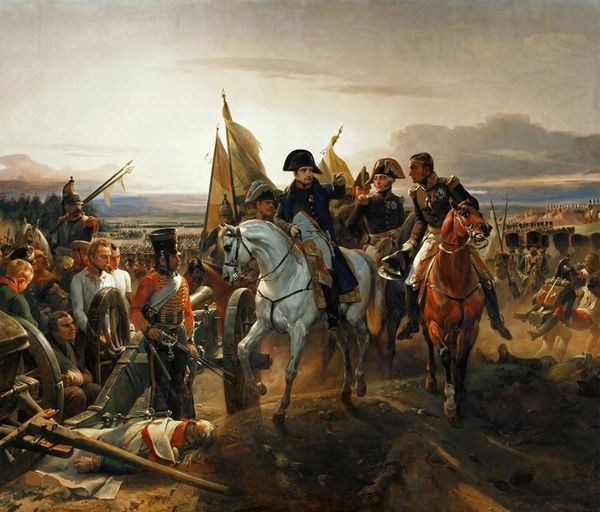
#
portrait
#
landscape
#
oil painting
#
romanticism
#
horse
#
genre-painting
#
history-painting
#
realism
Copyright: Public domain
Editor: Here we have Edward Hicks's "Washington at the Delaware," painted in 1840. I'm struck by the overall sense of patriotic drama, but also by the stark winter landscape. What symbols or ideas do you find most compelling in this depiction? Curator: Beyond the literal depiction, I see an assertion of American identity in the landscape itself. Consider the crossing of the Delaware. Water, a classic symbol of purification and transition. What do you think that crossing signifies for the newly forming nation? Editor: Maybe a cleansing of colonial ties and a journey into an unknown, independent future? Curator: Precisely. Now, observe the prominent position of Washington. His assured posture and calm demeanor are meant to evoke more than just a historical figure; he embodies the virtues the nascent nation aspires to possess: courage, resolve, and divine favor. Notice the positioning of figures around him, what feelings do they evoke? Editor: An impression of loyalty and unity, all focused on Washington. But is that how it really was? I read that this moment was very desperate for the Revolutionaries. Curator: Of course, the painting presents an idealized view. But the image persists because it touches upon deeper cultural values: leadership, destiny, and the idea of America as a chosen nation. So how might the realities of that moment and its representation speak to current anxieties? Editor: That's thought-provoking! The contrast between a glorified past and complex reality makes you think about what we choose to remember. Curator: Indeed. Every visual element serves as a signifier, linking historical narrative with cultural aspiration. The persistence of such symbolic depictions shapes our collective memory. What has struck me most today is how easily myths take on a symbolic power of their own, quite removed from historical veracity.
Comments
No comments
Be the first to comment and join the conversation on the ultimate creative platform.
